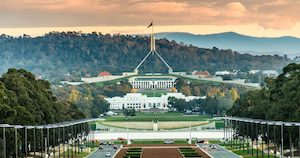The cat is progressively getting out of the bag – Part 2
This is the second and final part of my discussion of the – Economic Affairs Commitee (House of Lords) – hearings into – Quantitative Easing: Committee to examine whether inflationary fears justified, the future of QE, and the merits of ‘helicopter money’ approaches. In Part 1 we learned that statements made by notable central bank governors (or equivalent) to the public about what they are doing are highly questionable given the evidence given by two prominent witnesses to the House of Lords enquiry. The evidence doesn’t just refer to matters pertaining to the UK. We learned that it is obvious that large-scale government bond buying programs by central banks are funding fiscal deficits despite the denial from the central bank officials. In this Part, we find more revealing statements by the witnesses further suggest that the central bank officials, including those from the Reserve Bank of Australia governor, are, at best misleading. At worst – use your own words.
